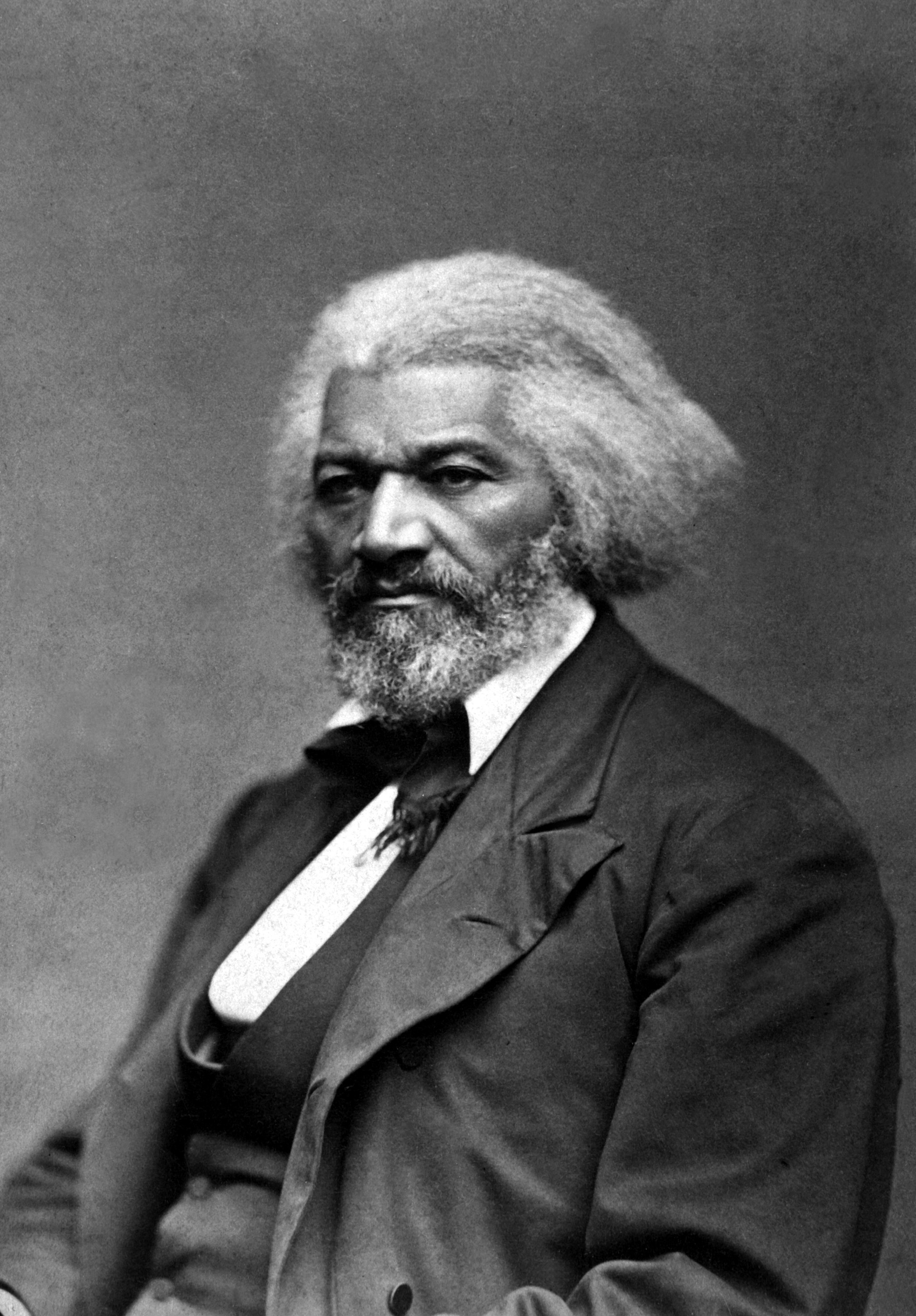„Границы возможностей тиранов определяются выносливостью тех, кого они угнетают.“
The limits of tyrants are prescribed by the endurance of those whom they oppress.
Фредерик Дуглас — американский писатель, просветитель, аболиционист, редактор и оратор. Один из известнейших борцов за права чернокожего населения Америки, руководитель негритянского освободительного движения.
Бежавший из рабства Дуглас стал лидером аболиционистского движения. Обладая выдающимися ораторскими способностями и умением излагать свои мысли письменно, Дуглас развернул обширную антирабовладельческую кампанию. Он стал живым ответом на аргументы рабовладельцев, утверждавших, что рабам не хватает интеллекта, чтобы стать независимыми американскими гражданами. Многие жители северных штатов США даже не могли поверить, что такой великий оратор, как Фредерик, был рабом.
Как писатель, Дуглас написал несколько мемуаров. В автобиографии «Повесть о жизни Фредерика Дугласа, американского раба» Дуглас красноречиво описал свои рабские будни. Книга стала бестселлером и влиятельным произведением в поддержку отмены рабства, впрочем, как и его другая писательская работа, «Мое рабство, моя свобода» . После Гражданской войны Дуглас оставался активным борцом против рабства и написал свою последнюю автобиографию, «Жизнь и эпоха Фредерика Дугласа». Он также поддерживал женское избирательное право.
Wikipedia

„Границы возможностей тиранов определяются выносливостью тех, кого они угнетают.“
The limits of tyrants are prescribed by the endurance of those whom they oppress.
„Жизнь нации в безопасности только тогда, когда эта нация честна, правдива и добродетельна.“
The life of the nation is secure only while the nation is honest, truthful, and virtuous.
I prefer to be true to myself, even at the hazard of incurring the ridicule of others, rather than to be false, and incur my own abhorrence.
I would unite with anybody to do right; and with nobody to do wrong.
Man's greatness consists in his ability to do and the proper application of his powers to things needed to be done.
No man can put a chain about the ankle of his fellow man without at last finding the other end fastened about his own neck.
Speech http://teachingamericanhistory.org/library/document/the-nations-problem/
1860s, What the Black Man Wants (1865)
1850s, What to the Slave is the Fourth of July? (1852)
1860s, What the Black Man Wants (1865)
1880s, The Future of the Colored Race (1886)
1860s, Our Composite Nationality (1869)
1870s, Self-Made Men (1872)
The Life and Times of Frederick Douglass (1892), Part 2, Chapter 13: Vast Changes
1890s, The Life and Times of Frederick Douglass (1892)
1880s, The Future of the Colored Race (1886)
1860s, Our Composite Nationality (1869)
1870s, Oratory in Memory of Abraham Lincoln (1876)
1860s, Our Composite Nationality (1869)
Speech: “I Speak to You as an American Citizen” speech, Oct. 1, 1870, Douglas Papers, ser. I, 4:275
1870s
As quoted in The Cambridge Companion to Frederick Douglass (2009), by Maurice S. Lee, Cambridge University Press, pp. 68-69
Speech http://teachingamericanhistory.org/library/document/the-nations-problem/
1860s, The Constitution of the United States: Is It Pro-Slavery or Anti-Slavery? (1860)
1860s, The Constitution of the United States: Is It Pro-Slavery or Anti-Slavery? (1860)
1860s, Our Composite Nationality (1869)
Источник: 1880s, Life and Times of Frederick Douglass (1881), pp. 102–103.
Love of God, Love of Man, Love of Country (October 22, 1847), Delivered at Market Hall, New York City, New York.
1840s, Love of God, Love of Man, Love of Country (1847)
The Nature of Slavery. Extract from a Lecture on Slavery, at Rochester, December 1, 1850
1850s, My Bondage and My Freedom (1855)
1870s, Oratory in Memory of Abraham Lincoln (1876)
The Petersburg men had written Douglass seeking advice about supporting John M. Langston as their Republican candidate for Congress. He would be their first black representative, but earlier he had worked against the Republican party. Douglass called him a trickster and said not to support anyone "whose mad ambition would imperil the success of the Republican party."
1880s, Letter to the Men of Petersburg (1888)
1870s, Oratory in Memory of Abraham Lincoln (1876)
Источник: 1850s, My Bondage and My Freedom (1855), Chapter 18: New Relations and Duties.
Speech at the Wendell Phillips Club http://teachingamericanhistory.org/library/document/the-nations-problem/ (11 September 1886).
1880s
Upon being forced to leave a train car due to his color, as quoted in Up from Slavery (1901), Ch. VI: "Black Race And Red Race, the penalty of telling the truth, of telling the simple truth, in answer to a series of strange questions", by Booker T. Washington